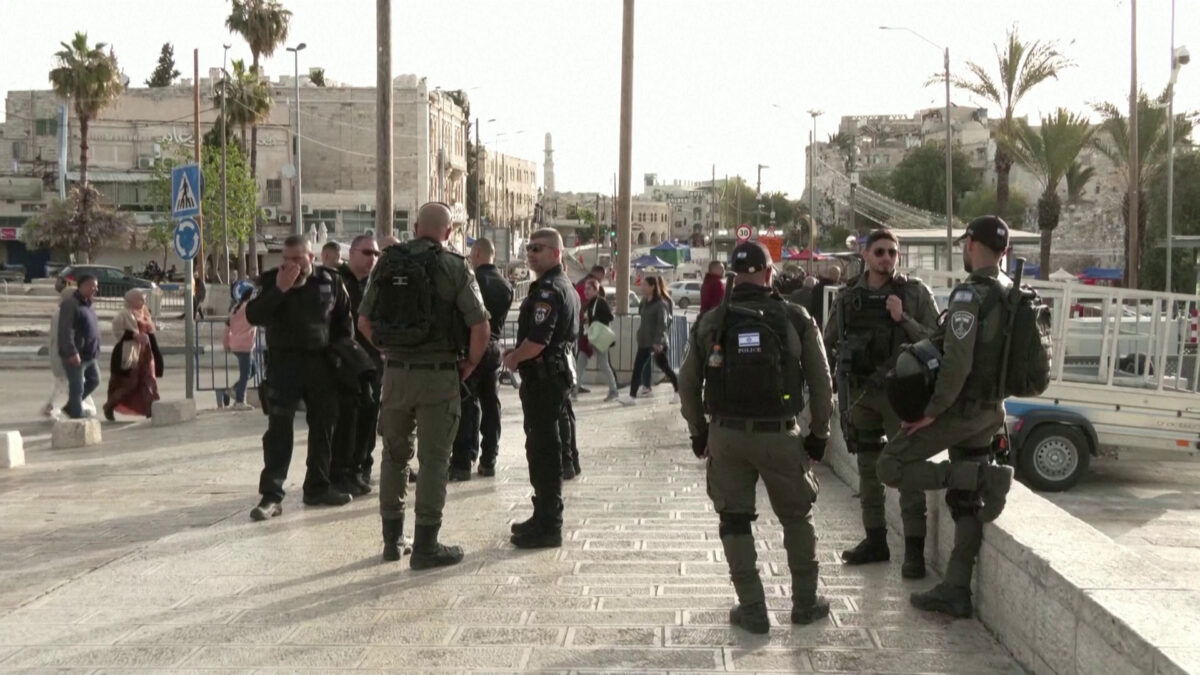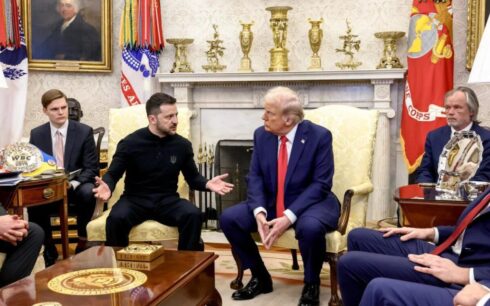Hezbollah and Hamas leaders met in Beirut in Lebanon, on Sunday to discuss the situation in the region following Israel’s attacks on Al-Aqsa Mosque in Jerusalem.
A Hezbollah statement said on Sunday the leaders of the Iran-backed Lebanese movement Hezbollah and the Palestinian movement Hamas discussed “the readiness of the axis of resistance” against Israel.
Ismail Haniyeh, the head of the Palestinian group Hamas, which rules the Gaza Strip, has been in the Lebanese capital since Wednesday. Israel blamed Hamas for firing 34 rockets on Thursday toward its territory from southern Lebanon, the stronghold of Hezbollah.
Israel’s army on Friday struck both southern Lebanon and Gaza.
During Haniyeh’s meeting with Hezbollah chief Hassan Nasrallah, the pair also discussed cooperation between its members in the face of recent developments, the Hezbollah statement said.
The “axis of resistance” refers to Lebanese, Palestinian, Syrian, Iraqi and other Iran-backed groups opposed to Israel.
The two also discussed “the intensification of resistance in the West Bank and Gaza” and “events at Al-Aqsa mosque” in Jerusalem, according to the statement.
This comes after Israeli police stormed the prayer hall of Al-Aqsa Mosque – Islam’s third-holiest site – in a pre-dawn raid and attacked worshippers inside, injuring and arresting hundreds.
Following the strikes on Lebanon and Gaza, Israel announced early Sunday it had struck targets in Syria in response to six rockets fired from Syrian territory.
The Israeli military also said three more rockets were launched from Syria toward Israel early on Sunday, raising to six the number of missiles fired within hours in a rare attack from Israel’s north-eastern neighbor.
Israel’s army said it was retaliating with artillery strikes on the area in Syria from where the rockets were fired at Israel. But fragments of a destroyed missile fell into Jordanian territory near the Syrian border, Jordan’s military reported.
Meanwhile, a Damascus-based Palestinian group loyal to the Syrian regime claimed responsibility for launching the three missiles on Israel on Saturday, reported Beirut-based Al-Mayadeen TV.
The report quoted Al-Quds Brigade, a militia different than the larger Palestinian Islamic Jihad’s armed wing with a similar name, as saying it fired the rockets to retaliate for the police raid on Al-Aqsa Mosque.
In Syria, an adviser to President Bashar Assad described the rocket strikes as “part of the previous, present and continuing response to the brutal enemy”.
Over 90 Palestinians have been killed by Israeli fire so far this year, at least half of them affiliated with militant groups, according to a tally by The Associated Press.
Palestinian attacks on Israelis have killed 19 people in that time — including on Friday when two British-Israeli women were shot to death near a settlement in the Jordan Valley and an Italian tourist was killed by a suspected car-ramming in Tel Aviv. All but one of the 19 killed were civilians.
The moves come at a time of heightened religious fervor – with Ramadan coinciding with Jewish Passover and Christian Easter celebrations.
Jerusalem’s Old City, home to key Jewish, Muslim and Christian holy sites, has been teeming with visitors and religious pilgrims from around the world.
Over 2,000 police were deployed in Jerusalem on Sunday – when thousands of Jews gathered at the Western Wall for the special Passover ceremony.
The Western Wall is the holiest site where Jews can pray and sits next to the Al-Aqsa Mosque compound, where large crowds gather each day for prayers during Ramadan.
Erdogan calls for calm
Turkey’s president Recep Tayyip Erdogan meanwhile called for calm on Saturday and said it was impossible for his country to remain silent in the face of provocations and threats to the status quo and spirituality of Jerusalem’s Al-Aqsa Mosque.
In a phone call, to his Israeli counterpart Isaac Herzog, Erdogan said the latest incidents wound the conscience of not only Muslims but all of humanity.
He also stressed the need to prevent such incidents from happening again and said Turkey was ready to help to get to the root of the problem and take steps towards establishing a just and lasting peace, Yeni Safak reported.





